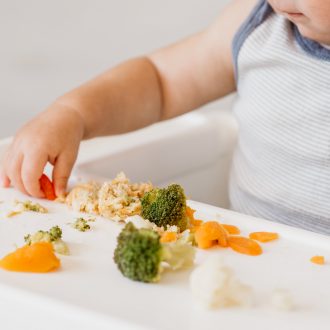
Do you have a fussy eater? Does your child refuse to try new food? Do they pick at the food on their plate and take ages to eat just a few mouthfuls? Is it a struggle to get them to eat healthily? Mealtimes can be very stressful occasions for many parents. You might worry that your toddler is not eating enough or wonder why they like a certain food one day yet refuse to eat it the next.
Fret not! It is very common for children between the ages of about 12 months and 6 years to be fussy about their food. Though some do wolf down anything put in front of them, more often than not a young child will be more choosy. This is normal. Eating is part and parcel of a child’s development. As they go through growth spurts, explore their environment, discover their likes and dislikes and assert their independence, they will change their eating preferences and habits.
8 tips for eating success:
Eat the same food, together.
Give your child the same food as the rest of the family to eat but in a smaller portion. Don’t be afraid to give them sophisticated cuisine. Try to have at least one mealtime together as a family each day. Let your child see you enjoying the same food that’s on their plate. Express how delicious the food is as you eat it to encourage your child to do the same.


Make mealtimes fun.
Aim to include something from all the recommended food groups to ensure a healthy balance but if your child is particularly fussy, serve their meal in a variety of shapes and colours. If you are all eating sandwiches, for example, cut them into different shapes or add some raisins or grapes to make the sandwiches look like a face.
Limit distractions.
Make eating just about eating! Turn off the TV and make sure that all devices are put aside for the duration of the meal. Focus attention solely on the pleasure of the family meal and the food.
Step by step.
If introducing a new food to your child, include just a small amount on a plate with food your child already likes. Be prepared for them to take quite some time before they even begin to taste it. Don’t despair if your child does not eat it at first. Try it another time. Introduce something else. The world of food is vast. They have plenty of time to develop their taste buds. Remember how you hated tomatoes when you were little but love them now?

Little helping hands.
Children thrive when given responsibility and choice. If your child is particularly fussy when it comes to eating, get them to help you plan and prepare meals. Give them a range of food items (as healthy as possible) to choose from and let them choose themselves. Ask them to help you when making a recipe. For example, “Can you find five tomatoes in the fridge for me?” “Would you like to help mummy wash these vegetables?” Ask them to pour the dressing over the salad or arrange the potatoes in the dish. If your child is involved in creating the meal, they are more likely to want to eat it!

Grow your own.
You don’t have to have a garden of a green house to grow your own herbs and veggies. A few pots on your balcony or the kitchen windowsill will do. Plant seeds with your child, care for them together, get excited about what you will be able to eat, watch them sprout and grow. The joy of eating home grown produce is so rewarding!
Healthy snack time.
Snacks are a good opportunity to introduce healthy food to your child in a fun way. Sticks of carrot and cucumber or fruit cut into interesting shapes for example. If your child did not eat their previous meal, a regular snack time of something healthy will give you the peace of mind that your child is receiving sufficient nutrients.
What to avoid:
Never force your child to eat something when they clearly don’t want to. You don’t want food and mealtimes to become a battle ground. Young children know how to press mummy’s buttons and as they assert their independence they may refuse to eat because they know it will spark a reaction. The more frustrated you appear to become, the more they will refuse. If after about half an hour your child still hasn’t eaten anything don’t worry. Calmly remove the plate until the next planned mealtime.

Worrying that your child is eating enough to grow up strong and healthy is a common concern among parents, especially first time parents. A child may be fussy about their food for any number of reasons: because they don’t like the way it looks or smells; depending on how fast or slow they are growing; depending how active they are. Your child’s preferences will change as they grow and as they experience different opportunities to try out different food. Providing your child is growing and developing through their normal milestones, generally active, alert and happy you can be sure they are getting enough to eat – and who knows, they may even go on to become the Master Chef of their generation!

